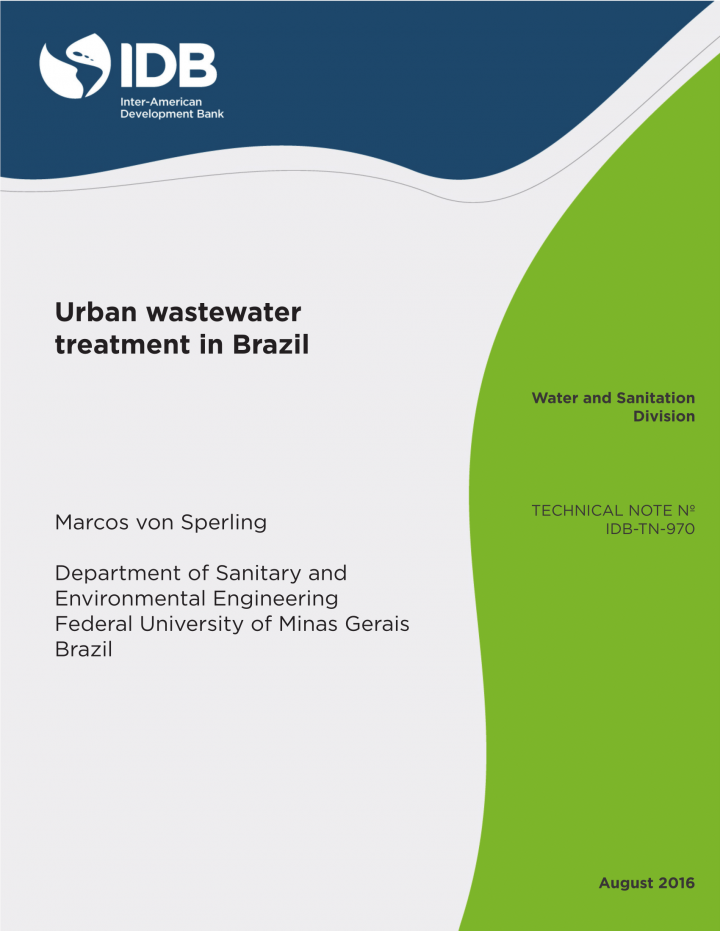Urban wastewater treatment in Brazil von Sperling, M. (2016)
The major focus of this report is the description and critical analysis of the main
wastewater treatment processes used in Brazil. Special emphasis is given to small to
medium size communities with populations lower than 100,000 inhabitants, which
represent approximately 95% of the 5,570 Brazilian municipalities. In terms of coverage,
around 40% of the sewage generated in Brazil is treated, with an estimated number of
treatment plants in the order of 2,800. Based on a survey of 2,187 treatment plants, the
configurations most widely adopted are: anaerobic pond followed by facultative pond;
UASB (upflow anaerobic sludge blanket) reactor; activated sludge; ponds followed
by maturation ponds; septic tank followed by anaerobic filter. An assessment of the
actual performance of 166 treatment plants showed a great variability in the effluent
concentrations and in the removal efficiencies, with performances that were usually
inferior to those reported in the technical literature. Data on capital cost expenditures
indicated values ranging from R$60/inhabitant to R$650/inhabitant, depending on the
treatment process employed. Due to the favorable climatic conditions in Brazil, there
are no technical limitations for the adoption of biological sewage treatment. Traditional
options incorporate stabilization ponds and activated sludge, but the more recent trend
involves the adoption of UASB reactors followed by some form of post-treatment.
Bibliographic information
von Sperling, M. (2016). Urban wastewater treatment in Brazil Inter-American Development Bank (IDB), Washington, D.C., United States
Filter / Tags
OtherUrban (entire city)PractitionersEnglish

